T h en there was the m u t i ny of 1857. T he causes we re the
mistakes and mi smanagement of the B r i t i sh peoples' o w n a u t h o r ities; the people of I n d ia had n ot o n ly no share in i t, b ut we re
a c tua l ly ready at the c a ll of the author i t i es to rise and support
t h e m. T he B r i t i sh supremacy was t r i u m p h a n t ly ma i n t a i n e d, b ut
w h at was the r e w a rd f or the people ? T he w h o le p a y m e nt to the
last f a r t h i ng of the cost was i n f l i c t ed u p on the peopl e. Let L o r d
N o r t h b r o o k say h ow shabbi ly they we re t r e a t ed:
" T he w h o le of the o r d i n a ry expenses in the Abys s ini an e x p e d it i on we re pa id by I n d i a, the a r g ume nt used b e i ng that I n d ia
w o u l d have to pay her t roops in the o r d i n a ry w ay and that she
o u g ht n ot to seek to make a p r o f it o ut of the affair. B ut h ow d i d
the H o me G o v e r n m e nt treat the I n d i an G o v e r n m e nt w h en t roops
we re sent o ut d u r i ng the M u t i n y ? D i d they say, ' We d o n 't w a nt
to make any p r o f it o ut of this?' N o t a b it of i t. E v e ry single m an
sent o ut was pa id for by India d u r i ng the w h o le t i m e, t h o u gh o n ly
t e m p o r a ry use was made of t h e m, i n c l u d i ng the cost of the ir
d r i l l i n g and t r a i n i ng as recruits u n t il they we re sent o u t ."
on t he admi s s ion of Indi ans to C o m m i s s i o ns in the B r i t i sh A r m y a nd to C o m m i s s i o ns in the R o y al N a v y
D a d a b h ai t h en s u b m i t t ed t he cor r e spondence w h i c h he h ad
c a r r i ed on w i t h the W a r Of f i ce a nd the A d m i r a l t y , r e spe c t ive ly,
on t he admi s s ion of Indi ans to C o m m i s s i o ns in the B r i t i sh A r m y
a nd to C o m m i s s i o ns in the R o y al N a v y . T he gist of the a r g u m e nt
in this cor r e spondence was t h at by e x c l u d i ng Indi ans f r o m
C o m m i s s i o ns in t he B r i t i sh A r m y a nd N a v y the a u t h o r i t i es h ad
l a id d o w n a r u le incons i s t ent w i t h the A c t of 1833 a nd the
P r o c l a m a t i on of 1858. H is n i n t h a nd f i n al n o te f u r n i s h ed a t able
s h o w i ng e x p e n d i t u re on wa rs b e y o nd the I n d i an f r o n t i e rs a nd
c o n t a i n i n g, so to say, t he o f f i c i al confession of the cost of the
F o r w a rd P o l i cy to t he p e o p le of I n d i a.
D a d a b h ai was n o t c o n t e nt w i t h m e r e ly p l a c i ng his statements
b e f o re the C o m m i s s i o n. T h e y m i g h t or m i g h t n o t be t a k en i n t o
a c c o u nt in c o m p i l i n g t he r e p o r t. I f , h o w e v e r , he appeared b e f o re
t he C o m m i s s i on as a wi tne ss a nd u r g ed t he issues raised by h i m in
those notes, t he C o m m i s s i on w o u l d , he t h o u g h t, be c o m p e l l ed to
de al w i t h those issues. In t h at h o pe he subj e c t ed h i m s e l f v o l u n -
t a r i ly to t he f i re of c r o s s - e x a m i n a t i on as a wi tne s s.
T h e re w e re several passages-at-arms b e t w e en t he C h a i r m an a nd
t he wi t n e s s. To c i te o ne ins t anc e.
The Cha i rman asked: " W h at is it that y ou want? Do y ou
wi sh to sweep away the wh o le Engl i sh scheme ?"
"Yes, as it i s ," was Dadabhai's r eply.
"I wa nt to k n ow whether y ou wi sh to get r id of it b o d i l y ?"
"The re y ou misunderstand m e ."
" W h at p r o p o r t i on w o u ld y ou keep ?"
"The re is no p r o p o r t i on there. Y o u must serve the double
purpose b o th of ma int a ining the supremacy in a v e ry remarkable
and a v e ry efficient mariner and at the same t ime the people must
feel that they are governed by themselves."
"I me r e ly w i sh to ask y ou whether y ou propose to retain any
part of C i v il Service—the European Service?"
" O n l y the highest p o r t i on such as the Vi c e r o y, the Governors,
the Commande r - in-Chi e f. Let us have the wh o le C i v il Service,
leaving alone the h i gh level of the Europeans as the c o n t r o l l i ng
p o w e r ."
" T h en y ou w o u ld have the Vi c e r o y, etc. ?"
"These c e r t a inly."
" N o Englishmen beneath them ?"
"I do n ot see any necessity for others."
" A n d by degrees y ou w o u ld evict t h em all ?"
" We may go gradually higher u p ."
" B ut the hi s tory of India is that the people have been c o nt i n u a l ly slaughtering each o t h e r ?"
" W h at have y ou done here? W h at is the history of Europe?
We do n ot w a nt to go back, because we have learnt as y o u
have l e a rnt ."
"Is y o ur recipe for r e v i v i ng the prosperity of I n d ia to let loose
the Pindaris ?"
" N o t necessarily. Those days are gone. . . . "
" Do y ou remember wh at Sir Madhava Rao, Pr ime Mini s t er of
Baroda, said to L o rd Roberts on the subject of India for the
Indians?"
" W h at d id he say?"
" He said it w o u ld be l i ke loosing the bars of the cages of the
Z o o l o g i c al Gardens and l e t t ing out the animals, that ve ry soon
they w o u ld all be dead except the tiger—the tiger was, I believe,
the wa r - l i ke people of N o r t h e rn I n d i a ."
"Is this the result of 150 years of B r i t i sh rule that we are not
c ivi l i z ed enough to observe l aw and o r d e r ?"
It was, on t he w h o l e, a b r i l l i a nt p e r f o r m a n c e. T he s e v e r i ty of
t he c r o s s - e x ami n a t i on gave h i m t he o p p o r t u n i t y of d r i v i n g h o me
a ll his p o i n ts
c a r r i ed on w i t h the W a r Of f i ce a nd the A d m i r a l t y , r e spe c t ive ly,
on t he admi s s ion of Indi ans to C o m m i s s i o ns in the B r i t i sh A r m y
a nd to C o m m i s s i o ns in the R o y al N a v y . T he gist of the a r g u m e nt
in this cor r e spondence was t h at by e x c l u d i ng Indi ans f r o m
C o m m i s s i o ns in t he B r i t i sh A r m y a nd N a v y the a u t h o r i t i es h ad
l a id d o w n a r u le incons i s t ent w i t h the A c t of 1833 a nd the
P r o c l a m a t i on of 1858. H is n i n t h a nd f i n al n o te f u r n i s h ed a t able
s h o w i ng e x p e n d i t u re on wa rs b e y o nd the I n d i an f r o n t i e rs a nd
c o n t a i n i n g, so to say, t he o f f i c i al confession of the cost of the
F o r w a rd P o l i cy to t he p e o p le of I n d i a.
D a d a b h ai was n o t c o n t e nt w i t h m e r e ly p l a c i ng his statements
b e f o re the C o m m i s s i o n. T h e y m i g h t or m i g h t n o t be t a k en i n t o
a c c o u nt in c o m p i l i n g t he r e p o r t. I f , h o w e v e r , he appeared b e f o re
t he C o m m i s s i on as a wi tne ss a nd u r g ed t he issues raised by h i m in
those notes, t he C o m m i s s i on w o u l d , he t h o u g h t, be c o m p e l l ed to
de al w i t h those issues. In t h at h o pe he subj e c t ed h i m s e l f v o l u n -
t a r i ly to t he f i re of c r o s s - e x a m i n a t i on as a wi tne s s.
T h e re w e re several passages-at-arms b e t w e en t he C h a i r m an a nd
t he wi t n e s s. To c i te o ne ins t anc e.
The Cha i rman asked: " W h at is it that y ou want? Do y ou
wi sh to sweep away the wh o le Engl i sh scheme ?"
"Yes, as it i s ," was Dadabhai's r eply.
"I wa nt to k n ow whether y ou wi sh to get r id of it b o d i l y ?"
"The re y ou misunderstand m e ."
" W h at p r o p o r t i on w o u ld y ou keep ?"
"The re is no p r o p o r t i on there. Y o u must serve the double
purpose b o th of ma int a ining the supremacy in a v e ry remarkable
and a v e ry efficient mariner and at the same t ime the people must
feel that they are governed by themselves."
"I me r e ly w i sh to ask y ou whether y ou propose to retain any
part of C i v il Service—the European Service?"
" O n l y the highest p o r t i on such as the Vi c e r o y, the Governors,
the Commande r - in-Chi e f. Let us have the wh o le C i v il Service,
leaving alone the h i gh level of the Europeans as the c o n t r o l l i ng
p o w e r ."
" T h en y ou w o u ld have the Vi c e r o y, etc. ?"
"These c e r t a inly."
" N o Englishmen beneath them ?"
"I do n ot see any necessity for others."
" A n d by degrees y ou w o u ld evict t h em all ?"
" We may go gradually higher u p ."
" B ut the hi s tory of India is that the people have been c o nt i n u a l ly slaughtering each o t h e r ?"
" W h at have y ou done here? W h at is the history of Europe?
We do n ot w a nt to go back, because we have learnt as y o u
have l e a rnt ."
"Is y o ur recipe for r e v i v i ng the prosperity of I n d ia to let loose
the Pindaris ?"
" N o t necessarily. Those days are gone. . . . "
" Do y ou remember wh at Sir Madhava Rao, Pr ime Mini s t er of
Baroda, said to L o rd Roberts on the subject of India for the
Indians?"
" W h at d id he say?"
" He said it w o u ld be l i ke loosing the bars of the cages of the
Z o o l o g i c al Gardens and l e t t ing out the animals, that ve ry soon
they w o u ld all be dead except the tiger—the tiger was, I believe,
the wa r - l i ke people of N o r t h e rn I n d i a ."
"Is this the result of 150 years of B r i t i sh rule that we are not
c ivi l i z ed enough to observe l aw and o r d e r ?"
It was, on t he w h o l e, a b r i l l i a nt p e r f o r m a n c e. T he s e v e r i ty of
t he c r o s s - e x ami n a t i on gave h i m t he o p p o r t u n i t y of d r i v i n g h o me
a ll his p o i n ts
English attitude to Indians-The " b o y s" of others may go to the dogs, perish or be degraded for wh at he cares.
In connexion w i t h
India generally, the Englishman ( w i th some noble exceptions)
deteriorates f r om a lover of l i b e r ty to a lover of despotism,
w i t h o ut the slightest regard as to h ow the Indians are affected and
bled. He suddenly becomes a superior, infallible being, and
demands that wh at he does is r i g h t, and should never be quest ioned. ( M r . Gladstone t r u ly called the " a rgument and l aw of
for c e" as the l aw and argument of the present A n g l o - I n d i an
rule.) " O ur boys" is his interest. The " b o y s" of others may go
to the dogs, perish or be degraded for wh at he cares.
India generally, the Englishman ( w i th some noble exceptions)
deteriorates f r om a lover of l i b e r ty to a lover of despotism,
w i t h o ut the slightest regard as to h ow the Indians are affected and
bled. He suddenly becomes a superior, infallible being, and
demands that wh at he does is r i g h t, and should never be quest ioned. ( M r . Gladstone t r u ly called the " a rgument and l aw of
for c e" as the l aw and argument of the present A n g l o - I n d i an
rule.) " O ur boys" is his interest. The " b o y s" of others may go
to the dogs, perish or be degraded for wh at he cares.
To Wacha January 12, 1905 FROM Dadabhai NAVROJI
To Wacha
January 12, 1905.
T he v e ry di s cont ent and imp a t i e n ce it (the Congress) has
e v o k ed against i t s e lf as s l ow and non-progr e s s ive a m o ng the rising
g e n e r a t i on arc a m o ng its best results or f r u i t. It is its o w n e v o l u t i on
a nd progress. . . . W h i l e there is great necessity f or i n f o r m i ng the
people here, there is as m u ch necessity that the t rue k n o w l e d ge
of t h e ir c o n d i t i on s h o u ld w i d e l y spread a m o ng the I n d i an people
themselves. T he c o - o r d i n a t i on of b o th is necessary to e v o l ve the
r e q u i r ed r e v o l u t i o n — w h e t h er it w o u l d be peaceful or v i o l e n t.
T he character of the r e v o l u t i on w i l l depend u p on the w i s d om
or u n w i s d om of the B r i t i sh G o v e r n m e nt and a c t i on of the
B r i t i sh peopl e. 4 4 2 D A D A B H AI N A O R O J I : T HE G R A ND O LD M A N OF I N D I A
July 12, 1906.
I hope the next Congress w i l l make a strong pronounc ement
as to the absolute necessity of self-government as the o n ly remedy
f or a ll India's wr o n gs and needs. Congress should make a clear
di s t inc t ion between t wo aspects of its duties. T he one, a complete
change of policy as speedily as possible in the most suitable w a y,
leading to self-government—this is Congress's m a in w o r k — a nd
the second, the hatefulness of the vagaries and failures of the
existing admini s t r a t ion. T he most i m p o r t a nt of the t wo is the
first. . . . T he w h o le mo v eme nt of the Congress must be managed
to be backed by the masses.
To Wacha
July 27, 1905.
We are n ot yet quite prepared to bite, it is true, unless the
vice of the rule so m u ch intensifies as to lead people to n i h i l i s m.
B ut our present weapon is to bark as l o u d ly as we can and as
frequently as possible. T he demand that we must have selfgovernment must be ever present and roa r ing a ll over Indi a. A R E S T L E SS P EN 4 4 I
. . . A n o t h er object it w i l l a c compl i sh is that the mass o f the
people w i l l be t r a i n ed in a g i t a t i on and be educated in the e v il
and the r eme d y. We need to move the masses to an appreciable
e x t e n t. . . . T he m o re t h ey t r y to keep us d o w n , the louder must
be o ur c r y, and o ur c ry mu st be clear and w e ll k e pt directed
t o w a r ds s e l f - g o v e r nme n t. Of course, a ll this is d i f f i c u l t, b ut it
has to be done. A c h i ld is helpless, b ut it has a p o w e r f ul we a p on
in c r y i n g. . . . I am afraid some b e g i n n i ng o f n i h i l i sm w i l l n ot be
v e ry distant
January 12, 1905.
T he v e ry di s cont ent and imp a t i e n ce it (the Congress) has
e v o k ed against i t s e lf as s l ow and non-progr e s s ive a m o ng the rising
g e n e r a t i on arc a m o ng its best results or f r u i t. It is its o w n e v o l u t i on
a nd progress. . . . W h i l e there is great necessity f or i n f o r m i ng the
people here, there is as m u ch necessity that the t rue k n o w l e d ge
of t h e ir c o n d i t i on s h o u ld w i d e l y spread a m o ng the I n d i an people
themselves. T he c o - o r d i n a t i on of b o th is necessary to e v o l ve the
r e q u i r ed r e v o l u t i o n — w h e t h er it w o u l d be peaceful or v i o l e n t.
T he character of the r e v o l u t i on w i l l depend u p on the w i s d om
or u n w i s d om of the B r i t i sh G o v e r n m e nt and a c t i on of the
B r i t i sh peopl e. 4 4 2 D A D A B H AI N A O R O J I : T HE G R A ND O LD M A N OF I N D I A
July 12, 1906.
I hope the next Congress w i l l make a strong pronounc ement
as to the absolute necessity of self-government as the o n ly remedy
f or a ll India's wr o n gs and needs. Congress should make a clear
di s t inc t ion between t wo aspects of its duties. T he one, a complete
change of policy as speedily as possible in the most suitable w a y,
leading to self-government—this is Congress's m a in w o r k — a nd
the second, the hatefulness of the vagaries and failures of the
existing admini s t r a t ion. T he most i m p o r t a nt of the t wo is the
first. . . . T he w h o le mo v eme nt of the Congress must be managed
to be backed by the masses.
To Wacha
July 27, 1905.
We are n ot yet quite prepared to bite, it is true, unless the
vice of the rule so m u ch intensifies as to lead people to n i h i l i s m.
B ut our present weapon is to bark as l o u d ly as we can and as
frequently as possible. T he demand that we must have selfgovernment must be ever present and roa r ing a ll over Indi a. A R E S T L E SS P EN 4 4 I
. . . A n o t h er object it w i l l a c compl i sh is that the mass o f the
people w i l l be t r a i n ed in a g i t a t i on and be educated in the e v il
and the r eme d y. We need to move the masses to an appreciable
e x t e n t. . . . T he m o re t h ey t r y to keep us d o w n , the louder must
be o ur c r y, and o ur c ry mu st be clear and w e ll k e pt directed
t o w a r ds s e l f - g o v e r nme n t. Of course, a ll this is d i f f i c u l t, b ut it
has to be done. A c h i ld is helpless, b ut it has a p o w e r f ul we a p on
in c r y i n g. . . . I am afraid some b e g i n n i ng o f n i h i l i sm w i l l n ot be
v e ry distant
To Hyndman October 1, 1904 FROM Dadabhai NAVROJI
To Hyndman
October 1, 1904.
If y ou w r i te a n y t h i ng to attack and disparage the Congress,
y ou w i l l weaken and discourage the o n ly b o dy t h r o u gh w h om
I n d ia has to w o r k o ut its r edempt ion. This w i l l be an i n j u ry to
India w h i ch y ou do n ot w a nt to do. I hope, therefore, y ou w i ll
n ot do a n y t h i ng to weaken the Congress. It has already m u ch
to contend against conf l i c t ing influences in India itself. . . .
Wh a t e v er may be y o ur o p i n i on about the deficiencies* of the
I n d i an character, y o ur course is to guide and help t h em to supply
such deficiency. In o ur w o r k , one factor is v e ry necessary—
Engl i shmen themselves to denounce the evils of the present
system. One Engl i shman l i ke y ou denounc ing the system w i l l
produce more influence in the minds of the B r i t i sh p u b l i c. . . .
We have to convince and conve rt the B r i t i sh publ ic and every
help is progress towards the object.
Hyndman to Dadabhai
February 2, 1905.
W h e t h er y ou survive me, or I y o u, it is certain that so l o ng
as my pen can w r i te and my tongue can speak, the ma ny scores
of m i l l i o ns w h o are be ing g r o u nd d o wn to death under o ur
merciless rule w i l l n ot lack a champion, such as he is, in this
c o u n t r y. I l i ve n ow in the hope of seeing the o v e r t h r ow of o ur
infamous system, A R
October 1, 1904.
If y ou w r i te a n y t h i ng to attack and disparage the Congress,
y ou w i l l weaken and discourage the o n ly b o dy t h r o u gh w h om
I n d ia has to w o r k o ut its r edempt ion. This w i l l be an i n j u ry to
India w h i ch y ou do n ot w a nt to do. I hope, therefore, y ou w i ll
n ot do a n y t h i ng to weaken the Congress. It has already m u ch
to contend against conf l i c t ing influences in India itself. . . .
Wh a t e v er may be y o ur o p i n i on about the deficiencies* of the
I n d i an character, y o ur course is to guide and help t h em to supply
such deficiency. In o ur w o r k , one factor is v e ry necessary—
Engl i shmen themselves to denounce the evils of the present
system. One Engl i shman l i ke y ou denounc ing the system w i l l
produce more influence in the minds of the B r i t i sh p u b l i c. . . .
We have to convince and conve rt the B r i t i sh publ ic and every
help is progress towards the object.
Hyndman to Dadabhai
February 2, 1905.
W h e t h er y ou survive me, or I y o u, it is certain that so l o ng
as my pen can w r i te and my tongue can speak, the ma ny scores
of m i l l i o ns w h o are be ing g r o u nd d o wn to death under o ur
merciless rule w i l l n ot lack a champion, such as he is, in this
c o u n t r y. I l i ve n ow in the hope of seeing the o v e r t h r ow of o ur
infamous system, A R
To Joseph Booth July 5, 1905. FROM Dadabhai Naoroji
To Joseph Booth
July 5, 1905.
Y o u p ut in a c o n d i t i on for the r i g ht of a people to c o n t r ol
their o wn affairs as wh en f a i r ly able to do so. This opens a door
for an excuse for the strong to interfere w i t h the weak. W h y
should any people have any r i g ht to subject another people?
E v e ry people have their r i g ht to enjoy their o wn and to c o n t r ol
their o wn affairs in the way they best can. T he d u ty of the more
c ivi l i z ed is n ot to subject and plunder the less c ivi l i z ed, b ut to
guide, help, and u p l i ft them w i t h o ut d e p r i v i ng them of their
independence
July 5, 1905.
Y o u p ut in a c o n d i t i on for the r i g ht of a people to c o n t r ol
their o wn affairs as wh en f a i r ly able to do so. This opens a door
for an excuse for the strong to interfere w i t h the weak. W h y
should any people have any r i g ht to subject another people?
E v e ry people have their r i g ht to enjoy their o wn and to c o n t r ol
their o wn affairs in the way they best can. T he d u ty of the more
c ivi l i z ed is n ot to subject and plunder the less c ivi l i z ed, b ut to
guide, help, and u p l i ft them w i t h o ut d e p r i v i ng them of their
independence
To George Freeman December 18, 1897. FROM Dadabhai Naoroji
To George Freeman
December 18, 1897.
There is, indeed, a remarkable coincidence between the treatment of India and Canada. T he same stupid mistakes and course.
B ut in the case of Indi a, persistence in this course of greed and
injustice—the result w i l l be an inconceivable disaster. . . . There
is no remedy for a ll o ur evils t i ll the fundamental e v il o f greed 4 4 4 D A D A B H At N A O R O J I: T HE G R A ND O LD M A N OF I N D I A
is remedied—either by a peaceful change of system or forced
by a r evolut ion—and a successful r e v o l u t i on in India means the
annihi l a t ion of B r i t i sh Indi a. Na t u re w i ll have its revenge, or, as
Salisbury says, "Injustice will bring the mightiest to ruin.." T he p i ty
is that t i ll any r e t r i b u t i on comes India must continue i n everincreasing suffering
-------------------------------------------------------------------------------------------------------------
2011:- BRITAIN IS HAVING TREMENDOUS ECONOMIC PROBLEM "Injustice will bring the mightiest to ruin.."
To J. E. Ellain July 9, 1898.FROM Dadabhai Naoroji
To J. E. Ellain
July 9, 1898.
I may say this o n ly here that wh en y ou d o u bt "wh e t h er India
w o u ld be better o ff under the gove rnment of any other European
P owe r ," y ou do n ot mean that as a j u s t i f i c a t i on of England's
evils in Indi a. T h e n, also, I do n ot k n ow in wh at way or sense
y ou use the words "better o f f ." In its economic condition I do not
see how India can be worse off. There arc some features in c o nne c t ion w i t h Russia, w h i ch she w i l l make g o od use of in t r y i ng
to make the people of India t h i nk that some of the bad features
of Engl i sh rule w i l l n ot exist in Russian rul e. W h e t h er Russia
or other Power must of necessity occupy Indi a, wh en Engl and
is made to leave, and whe ther Russia by be coming worse than
Engl and w i ll be able to ma int a in its p ower in Indi a, are a ll questions w h i ch t ime alone w i l l solve.
July 9, 1898.
I may say this o n ly here that wh en y ou d o u bt "wh e t h er India
w o u ld be better o ff under the gove rnment of any other European
P owe r ," y ou do n ot mean that as a j u s t i f i c a t i on of England's
evils in Indi a. T h e n, also, I do n ot k n ow in wh at way or sense
y ou use the words "better o f f ." In its economic condition I do not
see how India can be worse off. There arc some features in c o nne c t ion w i t h Russia, w h i ch she w i l l make g o od use of in t r y i ng
to make the people of India t h i nk that some of the bad features
of Engl i sh rule w i l l n ot exist in Russian rul e. W h e t h er Russia
or other Power must of necessity occupy Indi a, wh en Engl and
is made to leave, and whe ther Russia by be coming worse than
Engl and w i ll be able to ma int a in its p ower in Indi a, are a ll questions w h i ch t ime alone w i l l solve.
To The Right Reverend Henry Codman Potter, Bishop of New York May 14, 1900.FROM To The Right Reverend Henry Codman Potter, Bishop of New York May 14, 1900.FROM Dadabhai Naoroji
To The Right Reverend Henry Codman Potter,
Bishop of New York
May 14, 1900.
In a t e l e g r am f r om N e w Y o r k y o u are r e p o r t ed to have said,
at a me e t i ng h e ld at the C h a m b er of C o m m e r c e, t h at " t he
f ami ne was in one sense due to g o od g o v e r n m e n t. Gr e at B r i t a in
had s topped t r i b al wa r f a re and slaughter a n d, in consequence,
p o p u l a t i on increased.'* T h i s, Sir, is the usual A n g l o - I n d i an
r oma n c e. T he r e a l i ty is q u i te d i f f e r e n t—n ame l y, t h at the f u n d am e n t al cause of " t he e x t r eme p o v e r t y " of Indi ans, w i t h its n a t u r al
consequences of famines, plagues, and e v e ry k i n d of mi s e r y, is the
de s t ruc t ive system of g o v e r n m e nt of a b l e e d i ng f o r e i gn d o m i n a t i o n.
Bishop of New York to Dadahhai
May 2 8, 1 9 0 0.
I am b o u nd to add t h at I do n ot f i nd m y s e lf in agreement w i t h
the positions y ou m a i n t a in w i t h reference to the E n g l i sh o c c upancy of I n d i a. T h e re was no o r d e r, n or safety f or l i fe or p r o p e r t y,
n or f r e e d om of person in I n d ia u n t il E n g l a nd
w e nt there. As a
n a t i ve I n d i an of h i gh r a nk r e c e n t ly said to me in Madr a s, " W e
have a ll t h at y o u Ame r i c a ns f o u g ht f o r — l i f e, l i b e r ty and t he
pi f r suit of happiness; and if B r i t i sh p o w er we re to take i t s e lf
away f r om I n d ia t o - m o r r o w, we s h o u ld have b l o o d s h e d, chaos
and int e rne c ine warfares in endless v a r i e t i e s ." I confess, f or
mys e l f, t h at the people w h o are saved f r om these t h i n gs s h o u l d,
in my j u d g m e n t, pay the b i ll f or t h e m.
Dadahhai to Bishop of New York
June 10, 1900.
B o t h y o u and the Ma d r a si g e n t l eman do n ot seem to have
s tudi ed and considered the o t h er side. I mu st say a f ew w o r ds
of facts w i t h reference to y o ur statement t h at " we s h o u ld pay
the b i l l . " We s h o u ld pay f or h a v i ng been for c ed to p ay eve ry
f a r t h i ng ( e x c e p t i ng a v e ry f ew p a rt payments f or v e ry shame)
f or a ll the wa rs a nd o t h er circumstances f r om the v e ry b e g i n n i ng
of the E n g l i sh c o n n e c t i o n, f or b u i l d i ng up and m a i n t a i n i ng the
B r i t i sh I n d i an E m p i re e n t i r e ly at o ur o w n cost and m a i n ly w i t h
o ur b l o o d . . . w i t h the r e w a rd of b e i ng reduced to h e l o t r y ^ a nd
b e g g a r y! We s h o u ld pay f or b l e e d i ng us and c a r r y i ng away
clean o ut of the c o u n t ry hundreds of mi l l i o ns and continue to
dr a in incessantly and unceasingly, or we should pay for w h at
the Viceroys and Famine Commissioners sanction. . . . We
should pay for impove r i shing us to an extent to w h i ch probably
no na t ion has impoverished another! We should pay for a ll the
consequences of such "other improvement s" as famines, plagues
. . . and a chronic state of starvation . . . ! We should pay f or
the security of our p r o p e r ty w h i c h, in the most ingenious,
scientific and unseen w a y, is taken away f r om us by the p r otectors! We should pay for the security of our lives, w h i ch are
n ot left w o r t h l i v i n g, by p r o v i d i ng us w i t h starvation, famines,
pestilence, etc.! We should pay for the f u ll l i b e r ty we enjoy to
starve and perish. . . ! We should pay for official Europeans
bleeding us, and non-official Europeans e x p l o i t i ng our land and
labour and natural resources. . . ! In short, we should pay for a
destructive and dishonourable system of government v i o l a t i ng
Acts of Parliament and the most solemn pledges that ever a people
gave to another.
Bishop of New York
May 14, 1900.
In a t e l e g r am f r om N e w Y o r k y o u are r e p o r t ed to have said,
at a me e t i ng h e ld at the C h a m b er of C o m m e r c e, t h at " t he
f ami ne was in one sense due to g o od g o v e r n m e n t. Gr e at B r i t a in
had s topped t r i b al wa r f a re and slaughter a n d, in consequence,
p o p u l a t i on increased.'* T h i s, Sir, is the usual A n g l o - I n d i an
r oma n c e. T he r e a l i ty is q u i te d i f f e r e n t—n ame l y, t h at the f u n d am e n t al cause of " t he e x t r eme p o v e r t y " of Indi ans, w i t h its n a t u r al
consequences of famines, plagues, and e v e ry k i n d of mi s e r y, is the
de s t ruc t ive system of g o v e r n m e nt of a b l e e d i ng f o r e i gn d o m i n a t i o n.
Bishop of New York to Dadahhai
May 2 8, 1 9 0 0.
I am b o u nd to add t h at I do n ot f i nd m y s e lf in agreement w i t h
the positions y ou m a i n t a in w i t h reference to the E n g l i sh o c c upancy of I n d i a. T h e re was no o r d e r, n or safety f or l i fe or p r o p e r t y,
n or f r e e d om of person in I n d ia u n t il E n g l a nd
w e nt there. As a
n a t i ve I n d i an of h i gh r a nk r e c e n t ly said to me in Madr a s, " W e
have a ll t h at y o u Ame r i c a ns f o u g ht f o r — l i f e, l i b e r ty and t he
pi f r suit of happiness; and if B r i t i sh p o w er we re to take i t s e lf
away f r om I n d ia t o - m o r r o w, we s h o u ld have b l o o d s h e d, chaos
and int e rne c ine warfares in endless v a r i e t i e s ." I confess, f or
mys e l f, t h at the people w h o are saved f r om these t h i n gs s h o u l d,
in my j u d g m e n t, pay the b i ll f or t h e m.
Dadahhai to Bishop of New York
June 10, 1900.
B o t h y o u and the Ma d r a si g e n t l eman do n ot seem to have
s tudi ed and considered the o t h er side. I mu st say a f ew w o r ds
of facts w i t h reference to y o ur statement t h at " we s h o u ld pay
the b i l l . " We s h o u ld pay f or h a v i ng been for c ed to p ay eve ry
f a r t h i ng ( e x c e p t i ng a v e ry f ew p a rt payments f or v e ry shame)
f or a ll the wa rs a nd o t h er circumstances f r om the v e ry b e g i n n i ng
of the E n g l i sh c o n n e c t i o n, f or b u i l d i ng up and m a i n t a i n i ng the
B r i t i sh I n d i an E m p i re e n t i r e ly at o ur o w n cost and m a i n ly w i t h
o ur b l o o d . . . w i t h the r e w a rd of b e i ng reduced to h e l o t r y ^ a nd
b e g g a r y! We s h o u ld pay f or b l e e d i ng us and c a r r y i ng away
clean o ut of the c o u n t ry hundreds of mi l l i o ns and continue to
dr a in incessantly and unceasingly, or we should pay for w h at
the Viceroys and Famine Commissioners sanction. . . . We
should pay for impove r i shing us to an extent to w h i ch probably
no na t ion has impoverished another! We should pay for a ll the
consequences of such "other improvement s" as famines, plagues
. . . and a chronic state of starvation . . . ! We should pay f or
the security of our p r o p e r ty w h i c h, in the most ingenious,
scientific and unseen w a y, is taken away f r om us by the p r otectors! We should pay for the security of our lives, w h i ch are
n ot left w o r t h l i v i n g, by p r o v i d i ng us w i t h starvation, famines,
pestilence, etc.! We should pay for the f u ll l i b e r ty we enjoy to
starve and perish. . . ! We should pay for official Europeans
bleeding us, and non-official Europeans e x p l o i t i ng our land and
labour and natural resources. . . ! In short, we should pay for a
destructive and dishonourable system of government v i o l a t i ng
Acts of Parliament and the most solemn pledges that ever a people
gave to another.
To Major J. B. Keith December 5, 1901. FROM Dadabhai Naoroji
To Major J. B. Keith
December 5, 1901.
Y o u wa nt to k n ow "the approximate cost of Western c i v i l i z at i on to Indi a, say f or about fifty years." Before I deal w i t h this,
we have to remember that t i ll the year 1849, w h en Punjab was
annexed, a ll the wars f or the f o rma t i on of the Indi an E m p i re
were pa id for by the Indians, n ot to say anything about the ir
bloodshed for the same. T he maintenance of the Emp i re was
also at the cost of Indians; and besides to these was to be added
a ll the we a l th that had been r emi t t ed by the East India C omp a ny
p u b l i c l y, and by a ll Europeans pr iva t e ly, to this c o u n t r y; and
also w h at was consumed by a ll Europeans in India itself. A l l this,
w i t h interest, w i l l mean thousands o f mi l l ions and f o rm no small
part of the cost of We s t e rn c i v i l i z a t i o n.
N o w , c o m i ng to the cost, say, f r om 1850, this cost is best
ascertained by the net exports, that is to say, the produce and
we a l th that goes clean o ut of the count ry w i t h o ut any ma t e r i al
or commercial returns, and of these net exports we have official
records. The cost can be d i v i d ed i n to t wo parts:
( i ) A l l t h at is c o n s umed by Europeans in I n d ia to the d e p r i v at i o n of the Indi ans. Of this p a r t, I do n ot k n o w of any r e c o rd
as a v e ry r e l i able estimate. T h is is sometimes estimated at
£10,000,000 a n n u a l l y, or 10 crores of rupees a n n u a l l y.
(2) A l l t h at p r o d u ce or w e a l th of I n d ia t h at goes clean o ut of
the c o u n t ry in v a r i o us shapes as " n et e x p o r t s ." I f i r st g i ve
y o u the e x p o r ts o f f i c i a l ly r e c o r d ed f or the f i f ty years,
o m i t t i n g a p e r i od of six years, the uns e t t l ed p e r i od of the
I n d i an M u t i n y , comes to a b o ut Rs. 664 crores. To this
has to be added the p r o f i ts of the t o t al expor ts of m e rchandise, w h i c h is o n ly 10 % and a c tua l ly amounts to
310 crores of rupees. To this has to be added f r e i g ht and
insurance moni e s, a ll s h i p p i ng b e i ng B r i t i s h. Gene r a l ly 6 %.
To a ll the above i t ems is to be added the debt h e ld in the U n i t e d
K i n g d om w h i c h , in 1900, is a b o ut 186 crores of rupees, besides
t he rupee paper h e ld in E n g l a n d, hi I n d i a, t he debt is 132 crores,
of w h i c h a p o r t i on is h e ld by Europeans.
L a s t l y, there is the i t em of interest lost to I n d ia on this a c cum u l a t ed d r a i n. I f the o r d i n a ry I n d i an c o m m e r c i al c o m p o u nd
interest of 9 %, or even 5 %, be added, the t o t al cost of W e s t e rn
c i v i l i z a t i on w i l l be v e ry e n o rmo us inde ed. T he cost of " W e s t e rn
c i v i l i z a t i o n *' is s u m m ed up in the d e s t r u c t i on of m i l l i o ns by
f ami n e, pestilence, etc., a nd the subsistence of crores of m i l l i o ns
on insufficient f o o d.
December 5, 1901.
Y o u wa nt to k n ow "the approximate cost of Western c i v i l i z at i on to Indi a, say f or about fifty years." Before I deal w i t h this,
we have to remember that t i ll the year 1849, w h en Punjab was
annexed, a ll the wars f or the f o rma t i on of the Indi an E m p i re
were pa id for by the Indians, n ot to say anything about the ir
bloodshed for the same. T he maintenance of the Emp i re was
also at the cost of Indians; and besides to these was to be added
a ll the we a l th that had been r emi t t ed by the East India C omp a ny
p u b l i c l y, and by a ll Europeans pr iva t e ly, to this c o u n t r y; and
also w h at was consumed by a ll Europeans in India itself. A l l this,
w i t h interest, w i l l mean thousands o f mi l l ions and f o rm no small
part of the cost of We s t e rn c i v i l i z a t i o n.
N o w , c o m i ng to the cost, say, f r om 1850, this cost is best
ascertained by the net exports, that is to say, the produce and
we a l th that goes clean o ut of the count ry w i t h o ut any ma t e r i al
or commercial returns, and of these net exports we have official
records. The cost can be d i v i d ed i n to t wo parts:
( i ) A l l t h at is c o n s umed by Europeans in I n d ia to the d e p r i v at i o n of the Indi ans. Of this p a r t, I do n ot k n o w of any r e c o rd
as a v e ry r e l i able estimate. T h is is sometimes estimated at
£10,000,000 a n n u a l l y, or 10 crores of rupees a n n u a l l y.
(2) A l l t h at p r o d u ce or w e a l th of I n d ia t h at goes clean o ut of
the c o u n t ry in v a r i o us shapes as " n et e x p o r t s ." I f i r st g i ve
y o u the e x p o r ts o f f i c i a l ly r e c o r d ed f or the f i f ty years,
o m i t t i n g a p e r i od of six years, the uns e t t l ed p e r i od of the
I n d i an M u t i n y , comes to a b o ut Rs. 664 crores. To this
has to be added the p r o f i ts of the t o t al expor ts of m e rchandise, w h i c h is o n ly 10 % and a c tua l ly amounts to
310 crores of rupees. To this has to be added f r e i g ht and
insurance moni e s, a ll s h i p p i ng b e i ng B r i t i s h. Gene r a l ly 6 %.
To a ll the above i t ems is to be added the debt h e ld in the U n i t e d
K i n g d om w h i c h , in 1900, is a b o ut 186 crores of rupees, besides
t he rupee paper h e ld in E n g l a n d, hi I n d i a, t he debt is 132 crores,
of w h i c h a p o r t i on is h e ld by Europeans.
L a s t l y, there is the i t em of interest lost to I n d ia on this a c cum u l a t ed d r a i n. I f the o r d i n a ry I n d i an c o m m e r c i al c o m p o u nd
interest of 9 %, or even 5 %, be added, the t o t al cost of W e s t e rn
c i v i l i z a t i on w i l l be v e ry e n o rmo us inde ed. T he cost of " W e s t e rn
c i v i l i z a t i o n *' is s u m m ed up in the d e s t r u c t i on of m i l l i o ns by
f ami n e, pestilence, etc., a nd the subsistence of crores of m i l l i o ns
on insufficient f o o d.
To Sir K. Seshadri Iyer, Dewan of Mysore-FROM Dadabhai Naoroji
December 20, 1900.
F or some t i me past, I have been r e a d i ng the Mysore Standard
w i t h some distress o f m i n d . . . . I d i d n o t, h o w e v e r, t h i nk o f
t r o u b l i ng y o u . B u t w h at has n o w d e t e r m i n ed me to w r i te this
l e t t er to y o u is an a r t i c le in the Hindu, in w h i c h I read w i t h
m u ch r egr et t h at the M y s o re State was d e p a r t i ng f r om the v e ry
essence of the o n ly t r ue p o l i cy of a N a t i ve State, n a m e l y, t h at a
N a t i ve State m u st be a dmi n i s t r a t ed f r om t op to b o t t om by Na t i v es
themselves. E v en t he B r i t i sh G o v e r n m e nt i t s e lf h ad r e cogni z ed
this p r i n c i p le a n d, w h i le the late Maha r a ja was a m i n o r , the
G o v e r n m e nt of I n d ia t o ok special steps to reduce g r a d u a l ly the
f o r e i gn e l eme n t, so t h at w h en the Maha r a ja came to the G a d i,
he should have as nearly as possible a N a t i ve Admi n i s t r a t i o n. . . .
T he employment of Europeans in Mysore w o u ld be a t r i p le
curse: ( i ) Mysore w i l l be subject to an economic " b l e e d i n g"
v e ry mu ch l ike B r i t i sh Indi a. (2) It w i l l prove that Indians are
incapable of gove rning and could n ot do w i t h o ut Europeans,
the severest b l ow that can be inflicted on the Indians. (3) The
Anglo-Indians, w ho have so persistently opposed the Restoration
for more than 30 years, w i ll be o n ly too glad to f i nd the excuse,
that direct B r i t i sh administration w o u ld be the best for Mysore
and Na t i ve States generally.
W i t h regard to the G o ld Mines, or the mine r al resources of
Mysor e, I hope the Mysore State itself, or the Mysore people,
w o u ld w o r k t h em and keep f or themselves the we a l th that
Na ture has given to them, instead of a l l o w i ng a for e ign people
to take it away, leaving o n ly a small r o y a l ty to the State and o n ly
labourer's wages to the people. . . . I go even so far that Mysore
should strain every nerve to prepare her o wn subjects to carry on
the admini s t r a t ion.
F or some t i me past, I have been r e a d i ng the Mysore Standard
w i t h some distress o f m i n d . . . . I d i d n o t, h o w e v e r, t h i nk o f
t r o u b l i ng y o u . B u t w h at has n o w d e t e r m i n ed me to w r i te this
l e t t er to y o u is an a r t i c le in the Hindu, in w h i c h I read w i t h
m u ch r egr et t h at the M y s o re State was d e p a r t i ng f r om the v e ry
essence of the o n ly t r ue p o l i cy of a N a t i ve State, n a m e l y, t h at a
N a t i ve State m u st be a dmi n i s t r a t ed f r om t op to b o t t om by Na t i v es
themselves. E v en t he B r i t i sh G o v e r n m e nt i t s e lf h ad r e cogni z ed
this p r i n c i p le a n d, w h i le the late Maha r a ja was a m i n o r , the
G o v e r n m e nt of I n d ia t o ok special steps to reduce g r a d u a l ly the
f o r e i gn e l eme n t, so t h at w h en the Maha r a ja came to the G a d i,
he should have as nearly as possible a N a t i ve Admi n i s t r a t i o n. . . .
T he employment of Europeans in Mysore w o u ld be a t r i p le
curse: ( i ) Mysore w i l l be subject to an economic " b l e e d i n g"
v e ry mu ch l ike B r i t i sh Indi a. (2) It w i l l prove that Indians are
incapable of gove rning and could n ot do w i t h o ut Europeans,
the severest b l ow that can be inflicted on the Indians. (3) The
Anglo-Indians, w ho have so persistently opposed the Restoration
for more than 30 years, w i ll be o n ly too glad to f i nd the excuse,
that direct B r i t i sh administration w o u ld be the best for Mysore
and Na t i ve States generally.
W i t h regard to the G o ld Mines, or the mine r al resources of
Mysor e, I hope the Mysore State itself, or the Mysore people,
w o u ld w o r k t h em and keep f or themselves the we a l th that
Na ture has given to them, instead of a l l o w i ng a for e ign people
to take it away, leaving o n ly a small r o y a l ty to the State and o n ly
labourer's wages to the people. . . . I go even so far that Mysore
should strain every nerve to prepare her o wn subjects to carry on
the admini s t r a t ion.
To J. N. Tata September 16, 1902. --A RE S T L E SS P EN --Dadabhai Naoroji
Pray do n ot be annoyed for t r o u b l i ng y ou again. Is, it n ot
possible for y ou ro raise the m i l l i on y ou wa nt f r om the Indi an
Princes ? To me it is a matter of g r i ef that y ou should become the
instrument of enabling foreigners to carry away the natural
we a l th of India w i t h the o n ly benefit of some thousands of Indians
earning a l i v e l i h o o d. To my m i n d, it is a great i n j u ry to Indi a.
I w o u ld rather that this we a l th remained bur i ed than that it
should be carried away by other people. . . . I hope y ou w i ll
take it in the spi r it in w h i ch I am w r i t i ng i t.
T a ta e x p l a i n ed t h at he w o u l d be o n l y t oo w i l l i n g to f o l l o w
Da d a b h a i 's advi ce i f D a d a b h ai a nd o t h er I n d i an f r i ends c o u ld h e lp
h i m in r a i s i ng t he r e q u i r ed c a p i t al in B r i t i sh I n d ia a nd t he I n d i an
States at a b o ut t he same r a te of int e r e st w h i c h he w o u l d have to
p ay in E n g l a n d. D a d a b h ai w o r k e d w h o l e - h e a r t e d ly in t h at
d i r e c t i o n.
I am so glad (wr o te Tata on February 20, 1903) that once
more I have y o ur support in my I r on and Steel project and I thank y ou cordi a l ly for y o ur k i nd letter. I am disposed to take
the sanguine v i ew of the Kaiser-i-Hind that it may n ot be i m -
possible to find the w h o le capital in India—particularly as a Parsi
gentleman has, unsolicited, asked me to p ut h im d o wn for a
l a k h .
1
B ut I w i l l n ot conceal f r om y ou my belief that in order to
accomplish w h at b o th y ou and I h o ld desirable—namely, starting
I r on W o r ks w i t h as far as possible Indi an capital w h o l l y —I shall
need a ll the p owe r f ul support that men in y o ur pos i t ion and w i t h
recognized service to our c o u n t ry can extend. Things are s t i ll in
an experimental stage; my experts are w o r k i n g, and I am determi n ed n ot to i n v i te subscriptions of capital, u n t il by a t r i a l -pl ant,
costing something l ike 4 or 5 lakhs, I have felt sure of success.
It was n ot g i v en to t he greatest I n d i an i n d u s t r i a l i st of the d ay to
see t he results of his s p l e n d id scheme to raise I n d ia to t he status of
o ne of t he greatest i n d u s t r i al c o u n t r i es of t he w o r l d . He d i ed
b e f o re t he scheme h ad passed t h r o u g h t he e x p e r i m e n t al stage.
W h e n , h o w e v e r, it m a t e r i a l i z e d, a nd w h e n c a p i t al was i n v i t ed
f r o m the p u b l ic ( A u g u st 1907), the T a ta offices in B o m b a y w e re
besieged f r o m e a r ly m o r n i n g t i l l late at n i g ht b y c r o w ds o f
i n v e s t o r s. At t he e nd of t h r ee we eks e v e ry rupee of t he e n t i re
c a p i t al r e q u i r ed at the t i me was c o n t r i b u t ed by I n d i an i n v e s t o r s.
possible for y ou ro raise the m i l l i on y ou wa nt f r om the Indi an
Princes ? To me it is a matter of g r i ef that y ou should become the
instrument of enabling foreigners to carry away the natural
we a l th of India w i t h the o n ly benefit of some thousands of Indians
earning a l i v e l i h o o d. To my m i n d, it is a great i n j u ry to Indi a.
I w o u ld rather that this we a l th remained bur i ed than that it
should be carried away by other people. . . . I hope y ou w i ll
take it in the spi r it in w h i ch I am w r i t i ng i t.
T a ta e x p l a i n ed t h at he w o u l d be o n l y t oo w i l l i n g to f o l l o w
Da d a b h a i 's advi ce i f D a d a b h ai a nd o t h er I n d i an f r i ends c o u ld h e lp
h i m in r a i s i ng t he r e q u i r ed c a p i t al in B r i t i sh I n d ia a nd t he I n d i an
States at a b o ut t he same r a te of int e r e st w h i c h he w o u l d have to
p ay in E n g l a n d. D a d a b h ai w o r k e d w h o l e - h e a r t e d ly in t h at
d i r e c t i o n.
I am so glad (wr o te Tata on February 20, 1903) that once
more I have y o ur support in my I r on and Steel project and I thank y ou cordi a l ly for y o ur k i nd letter. I am disposed to take
the sanguine v i ew of the Kaiser-i-Hind that it may n ot be i m -
possible to find the w h o le capital in India—particularly as a Parsi
gentleman has, unsolicited, asked me to p ut h im d o wn for a
l a k h .
1
B ut I w i l l n ot conceal f r om y ou my belief that in order to
accomplish w h at b o th y ou and I h o ld desirable—namely, starting
I r on W o r ks w i t h as far as possible Indi an capital w h o l l y —I shall
need a ll the p owe r f ul support that men in y o ur pos i t ion and w i t h
recognized service to our c o u n t ry can extend. Things are s t i ll in
an experimental stage; my experts are w o r k i n g, and I am determi n ed n ot to i n v i te subscriptions of capital, u n t il by a t r i a l -pl ant,
costing something l ike 4 or 5 lakhs, I have felt sure of success.
It was n ot g i v en to t he greatest I n d i an i n d u s t r i a l i st of the d ay to
see t he results of his s p l e n d id scheme to raise I n d ia to t he status of
o ne of t he greatest i n d u s t r i al c o u n t r i es of t he w o r l d . He d i ed
b e f o re t he scheme h ad passed t h r o u g h t he e x p e r i m e n t al stage.
W h e n , h o w e v e r, it m a t e r i a l i z e d, a nd w h e n c a p i t al was i n v i t ed
f r o m the p u b l ic ( A u g u st 1907), the T a ta offices in B o m b a y w e re
besieged f r o m e a r ly m o r n i n g t i l l late at n i g ht b y c r o w ds o f
i n v e s t o r s. At t he e nd of t h r ee we eks e v e ry rupee of t he e n t i re
c a p i t al r e q u i r ed at the t i me was c o n t r i b u t ed by I n d i an i n v e s t o r s.
T he v e ry f i r st l e t t er ( J u ly 5, 1894), w r i t t e n by G a n d hi to D a d a b h a i,
T he v e ry f i r st l e t t er ( J u ly 5, 1894), w r i t t e n by G a n d hi to
D a d a b h a i, is of p e c u l i ar int e r e st as it e m b o d i ed a s t r i k i n g ly
mo d e st pe r sonal e x p l a n a t i o n.
A w o rd for mys e lf and I have done. I am yet inexperienced
and y o u ng and therefore quite liable to make mistakes. The
responsibility undertaken is quite o ut of p r o p o r t i on to my a b i l i t y.
I may me n t i on that I am d o i ng this w i t h o ut any r emune r a t ion.
So y ou w i l l see that I have n ot taken the matter up, w h i ch is
beyond my a b i l i t y, in order to enrich mys e lf at the expense of
the Indians. I am the o n ly available person w ho can handle the
question. Y o u w i l l, t h e r e f o r e, oblige me v e ry greatly if y ou w i ll
k i n d ly direct and guide me and make necessary suggestions
w h i ch shall be received as f r om a father to his c h i l d.
HISTORY OF INDIANS IN SOUTH AFRICA:-
W i t h t he i n d e n t u r ed l abour e rs w e nt p e t ty I n d i an traders a nd
t h e ir free servants to N a t a l, t he T r a n s v a a l, t he O r a n ge Free
State, a nd Cape C o l o n y . S i m p le in t h e ir m o de of l i fe a nd t h r i f t y
as t h ey w e r e, t h ey g e n e r a l ly f l o u r i s h e d. M o s t of t he i n d e n t u r ed
l a b o u r e rs set u p, after h a v i ng served t h e ir t e rms, as a g r i c u l t u r i s t s,
s m a ll c r a f t sme n, or traders. T h is was n o t, h o w e v e r, w h at the
w h i t e coloni s ts h ad l o o k e d f o r . T h e y h ad m e r e ly c a l l ed f or
l a b o u r e rs w h o s h o u ld d r u d ge f or t h em p e r p e t u a l l y, or leave the
c o u n t r y a f t er a s t i p u l a t ed p e r i o d. T h e idea t h at t h ey s h o u ld enter
i n t o c o m p e t i t i o n, e v en to a s m a ll e x t e n t, w i t h t he w h i te i n h a b i -
tants of t he C o l o n i e s, as a g r i c u l t u r i s ts a nd traders, h ad never
e n t e r ed t h e ir heads. I f I n d ia c o n t i n u ed to p o ur i n to the C o l o n y
e v en a f ew thousands e v e ry ye ar o ut of her vast p o p u l a t i o n,
w h e re w o u l d t h ey s t and w i t h i n a f ew years? " A w a y w i t h t he
A s i a t i c s !" became t h e ir w a t c h w o r d
MAHATMA GANDHI'S ARRIVAL IN SOUTH AFRICA AS AN ADVOCATE:-
[It was a purely professional visit w h i ch took Mahatma Gandhi
f r om India to South Af r i ca in A p r il 1893. The hardships he
encountered dur ing the j o u r n ey on railway trains, the indignities
to w h i ch he was subjected, and even the assaults made on h i m,
all because he was an Indian, so disgusted h im that his first
impulse was to quit the count ry f o r t h w i t h. B ut what about the
professional engagement? C o u ld he return w i t h o ut f u l f i l l i ng it?
W h i le he was s t i ll undecided, he was pushed out of the train one
night by a European police constable at Ma r i t z b u r g. Late that
night he came to the conclusion that it w o u ld be a c owa i d ly act
to hasten back to India. He, therefore, proceeded to Pretoria,
pocketing further insults, and attended to his professional w o r k.
Just as he was preparing to return to India, early in the year
1894, Gandhi found that the Government of Na t al was about
to introduce a B i ll to disfranchise Indians. He advised them to
resist strongly such an encroachment on their rights. "Stay and
help us," they prayed. The same n i g ht he drew up a petition to
be presented to the Legislative C o u n c i l. Then he founded the
Na t al Indian Congress, and carried on an agitation not only in
South Af r i ca but also in England against the iniquities of the
authorities. W e e k ly letters were w r i t t en to Dadabhai, as member,
and to Wedde rburn, as Chairman, of the Br i t i sh Committee of
the Indian Na t ional Congress. Whenever there was need to send
copies of representations, a sum of at least £ 10 was remitted
to Dadabhai as a c o n t r i b u t i on towards postage and other
charge]
MAHATMA GANDHI'S INVOLVEMENT IN THE SOUTH AFRICAN INDIAN PROTEST-_
I n d i an me r chants in t he T r a n s v a al also sent D a d a b h ai a'
c a b l e g r am ( O c t o b er 13) to the effect t h at the V o l k s r a ad h ad
passed a r e s o l u t i on i n s t r u c t i ng the G o v e r n m e nt to c a r ry o ut
L a w 3 of 1885 in respect of I n d i an me r chant s, p r o h i b i t i n g t h em
f r om c a r r y i ng on v o c a t i o ns in t o w n s, a nd t h at t h ey p r a y ed f or
t he Q u e en Empress's i n t e r v e n t i on in p r o t e c t i on of her I n d i an
subjects. O t h er letters f o l l o w ed c o n c e r n i ng t he p o s i t i on of I n d i an
subjects in t he S o u th A f r i c an R e p u b l ic a nd t he O r a n ge Free State.
D a d a b h ai f a i t h f u l ly passed on a ll c o m m u n i c a t i o ns to L o r d R i p o n
w i t h a request t h at he w o u l d do his best to do j u s t i ce to t he
a g g r i e v ed pa r t i e s
The authorities in South
Af r i ca were not in a m o od to listen u n t il there appeared on the
scene a sagacious leader w ho taught his countrymen in that
f a r -off land, powerless as they were, the secret of the efficacy of
soul-force in w i n n i ng a v i c t o ry for the T r u t h, w i t h o ut recourse
to violence.
D a d a b h a i, is of p e c u l i ar int e r e st as it e m b o d i ed a s t r i k i n g ly
mo d e st pe r sonal e x p l a n a t i o n.
A w o rd for mys e lf and I have done. I am yet inexperienced
and y o u ng and therefore quite liable to make mistakes. The
responsibility undertaken is quite o ut of p r o p o r t i on to my a b i l i t y.
I may me n t i on that I am d o i ng this w i t h o ut any r emune r a t ion.
So y ou w i l l see that I have n ot taken the matter up, w h i ch is
beyond my a b i l i t y, in order to enrich mys e lf at the expense of
the Indians. I am the o n ly available person w ho can handle the
question. Y o u w i l l, t h e r e f o r e, oblige me v e ry greatly if y ou w i ll
k i n d ly direct and guide me and make necessary suggestions
w h i ch shall be received as f r om a father to his c h i l d.
HISTORY OF INDIANS IN SOUTH AFRICA:-
W i t h t he i n d e n t u r ed l abour e rs w e nt p e t ty I n d i an traders a nd
t h e ir free servants to N a t a l, t he T r a n s v a a l, t he O r a n ge Free
State, a nd Cape C o l o n y . S i m p le in t h e ir m o de of l i fe a nd t h r i f t y
as t h ey w e r e, t h ey g e n e r a l ly f l o u r i s h e d. M o s t of t he i n d e n t u r ed
l a b o u r e rs set u p, after h a v i ng served t h e ir t e rms, as a g r i c u l t u r i s t s,
s m a ll c r a f t sme n, or traders. T h is was n o t, h o w e v e r, w h at the
w h i t e coloni s ts h ad l o o k e d f o r . T h e y h ad m e r e ly c a l l ed f or
l a b o u r e rs w h o s h o u ld d r u d ge f or t h em p e r p e t u a l l y, or leave the
c o u n t r y a f t er a s t i p u l a t ed p e r i o d. T h e idea t h at t h ey s h o u ld enter
i n t o c o m p e t i t i o n, e v en to a s m a ll e x t e n t, w i t h t he w h i te i n h a b i -
tants of t he C o l o n i e s, as a g r i c u l t u r i s ts a nd traders, h ad never
e n t e r ed t h e ir heads. I f I n d ia c o n t i n u ed to p o ur i n to the C o l o n y
e v en a f ew thousands e v e ry ye ar o ut of her vast p o p u l a t i o n,
w h e re w o u l d t h ey s t and w i t h i n a f ew years? " A w a y w i t h t he
A s i a t i c s !" became t h e ir w a t c h w o r d
MAHATMA GANDHI'S ARRIVAL IN SOUTH AFRICA AS AN ADVOCATE:-
[It was a purely professional visit w h i ch took Mahatma Gandhi
f r om India to South Af r i ca in A p r il 1893. The hardships he
encountered dur ing the j o u r n ey on railway trains, the indignities
to w h i ch he was subjected, and even the assaults made on h i m,
all because he was an Indian, so disgusted h im that his first
impulse was to quit the count ry f o r t h w i t h. B ut what about the
professional engagement? C o u ld he return w i t h o ut f u l f i l l i ng it?
W h i le he was s t i ll undecided, he was pushed out of the train one
night by a European police constable at Ma r i t z b u r g. Late that
night he came to the conclusion that it w o u ld be a c owa i d ly act
to hasten back to India. He, therefore, proceeded to Pretoria,
pocketing further insults, and attended to his professional w o r k.
Just as he was preparing to return to India, early in the year
1894, Gandhi found that the Government of Na t al was about
to introduce a B i ll to disfranchise Indians. He advised them to
resist strongly such an encroachment on their rights. "Stay and
help us," they prayed. The same n i g ht he drew up a petition to
be presented to the Legislative C o u n c i l. Then he founded the
Na t al Indian Congress, and carried on an agitation not only in
South Af r i ca but also in England against the iniquities of the
authorities. W e e k ly letters were w r i t t en to Dadabhai, as member,
and to Wedde rburn, as Chairman, of the Br i t i sh Committee of
the Indian Na t ional Congress. Whenever there was need to send
copies of representations, a sum of at least £ 10 was remitted
to Dadabhai as a c o n t r i b u t i on towards postage and other
charge]
MAHATMA GANDHI'S INVOLVEMENT IN THE SOUTH AFRICAN INDIAN PROTEST-_
I n d i an me r chants in t he T r a n s v a al also sent D a d a b h ai a'
c a b l e g r am ( O c t o b er 13) to the effect t h at the V o l k s r a ad h ad
passed a r e s o l u t i on i n s t r u c t i ng the G o v e r n m e nt to c a r ry o ut
L a w 3 of 1885 in respect of I n d i an me r chant s, p r o h i b i t i n g t h em
f r om c a r r y i ng on v o c a t i o ns in t o w n s, a nd t h at t h ey p r a y ed f or
t he Q u e en Empress's i n t e r v e n t i on in p r o t e c t i on of her I n d i an
subjects. O t h er letters f o l l o w ed c o n c e r n i ng t he p o s i t i on of I n d i an
subjects in t he S o u th A f r i c an R e p u b l ic a nd t he O r a n ge Free State.
D a d a b h ai f a i t h f u l ly passed on a ll c o m m u n i c a t i o ns to L o r d R i p o n
w i t h a request t h at he w o u l d do his best to do j u s t i ce to t he
a g g r i e v ed pa r t i e s
The authorities in South
Af r i ca were not in a m o od to listen u n t il there appeared on the
scene a sagacious leader w ho taught his countrymen in that
f a r -off land, powerless as they were, the secret of the efficacy of
soul-force in w i n n i ng a v i c t o ry for the T r u t h, w i t h o ut recourse
to violence.
Mahatma Gandhi Life with Photos, Pictures
| Back to Home |
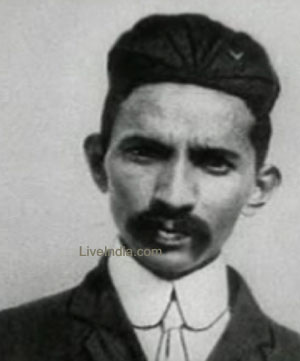 |
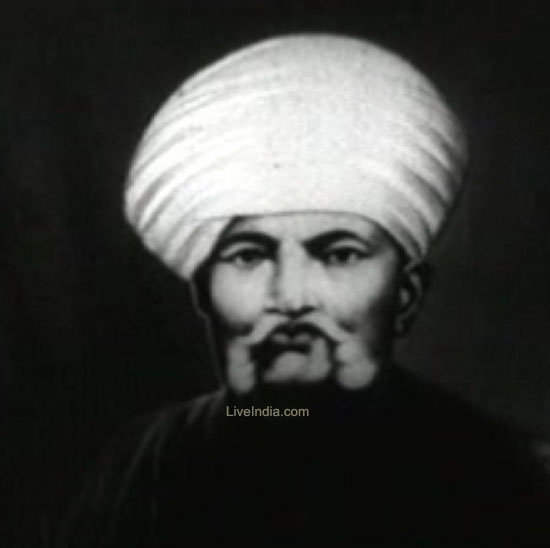 Father karm Chand Gandhi s/o Uttam Chand Gandhi Mohan's Grand Father was Diwan of Porbandar, Gujarat | 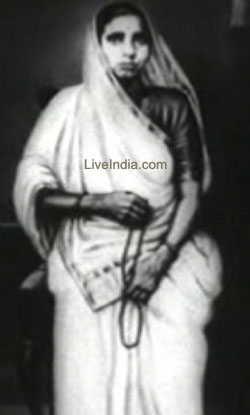 Mother Putli Bai Gandhi Born into a modest Gujarati family, Mohandas Karamchand Gandhi |
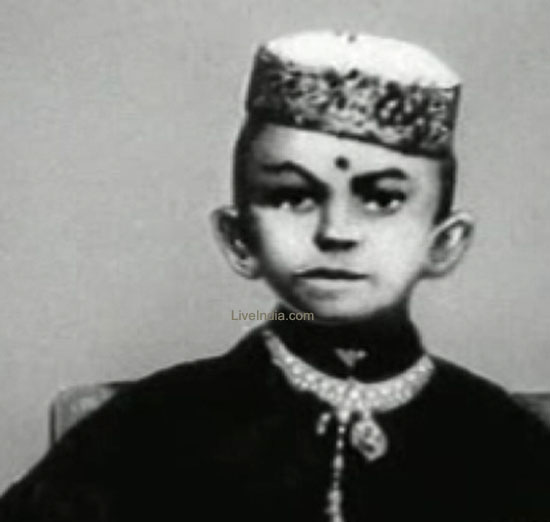 | 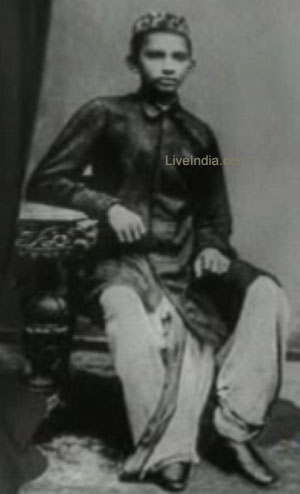 Mohandas |
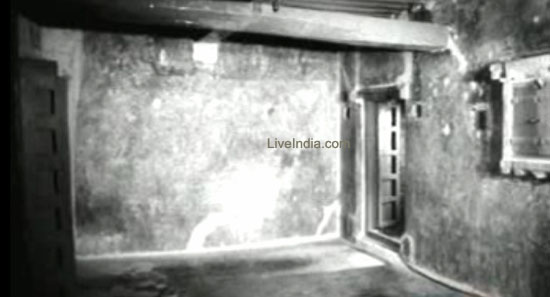 2nd. Oct. 1869 - Birth Place Porbandar, Gujarat |
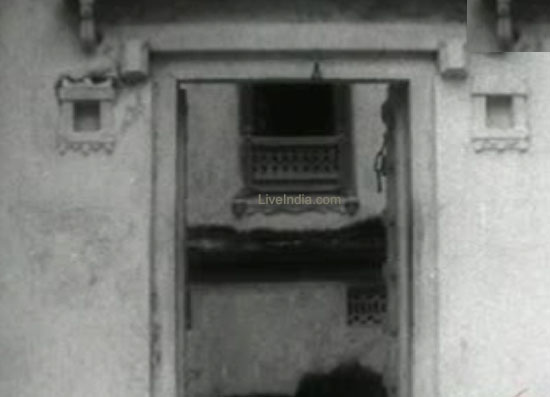 House Mohan was only 7 when his father left the service of the Porbandar state and move with his family to Rajkot |
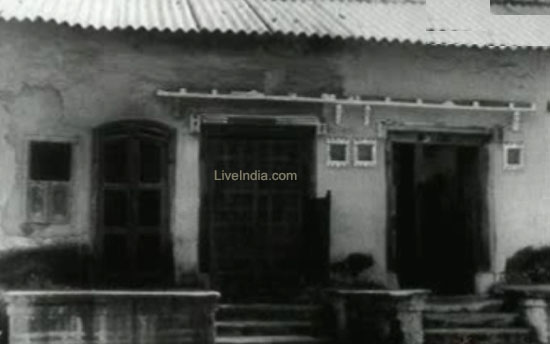 1st. School - age of 6, Mohan was in Central School near house at Porbandar, Gujarat |
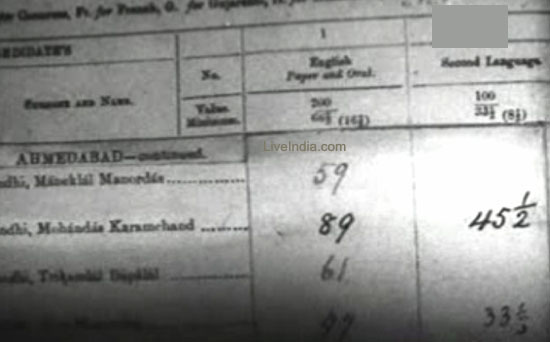 In 1887 Pass Matriculation Exams from Ahmdabad center and join the collage at Bhav Nagar but end of the 1st. term he left the collage to proceed to England for Studies. |
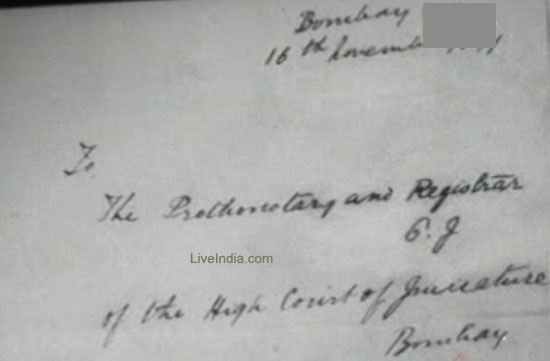 |
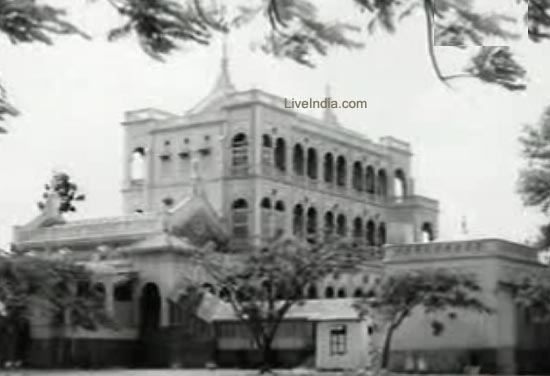 |
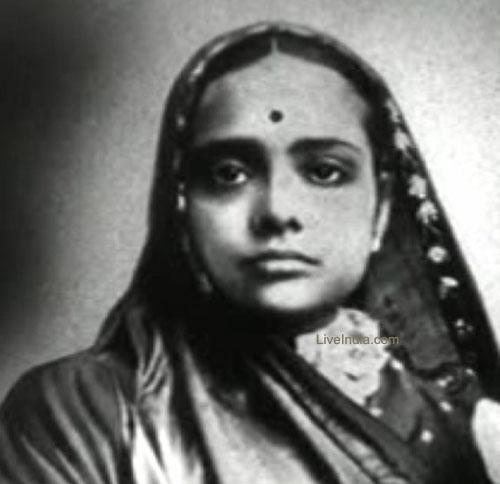 At the early age of 13, Mohan was married to Kasturba of same age at Porbandar, Gujarat |
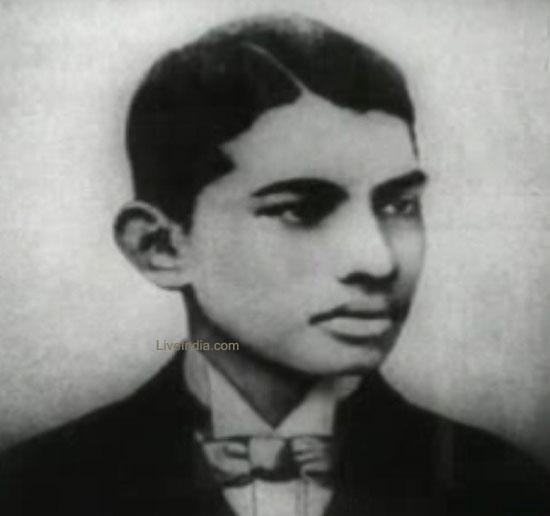 |
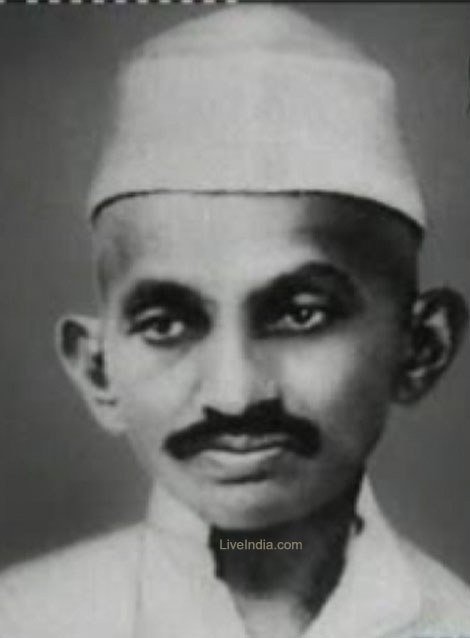 |
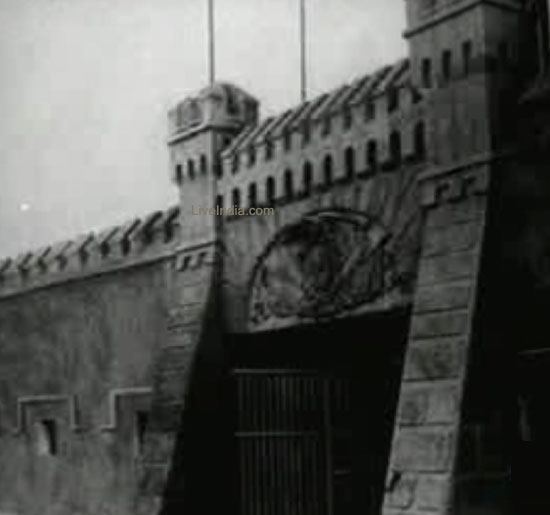 |
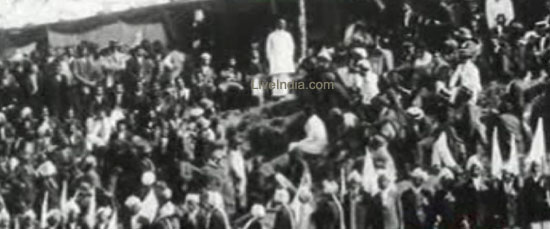 |
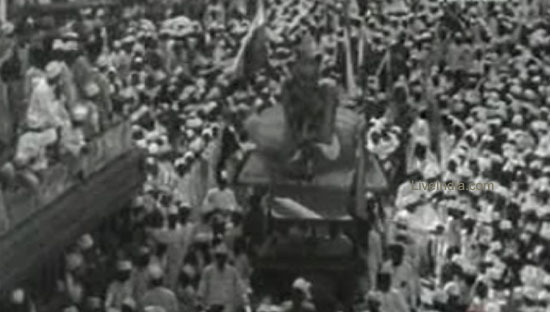 |
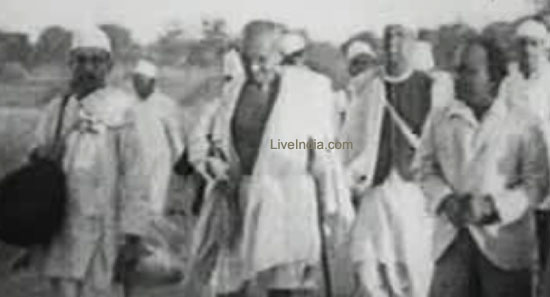 |
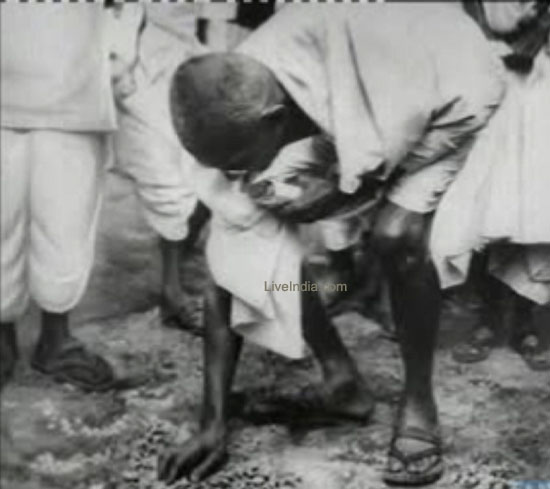 |
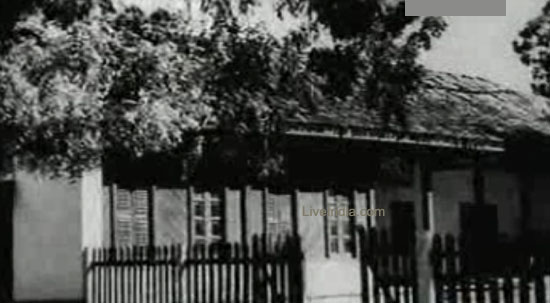 |
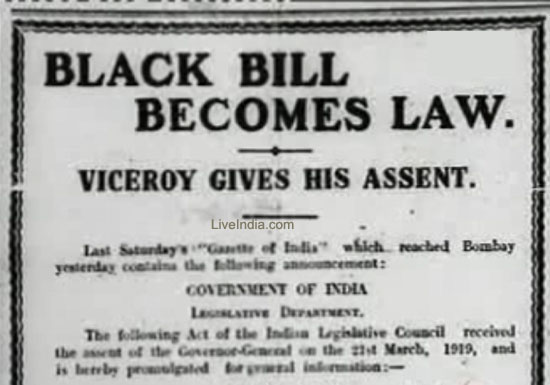 |
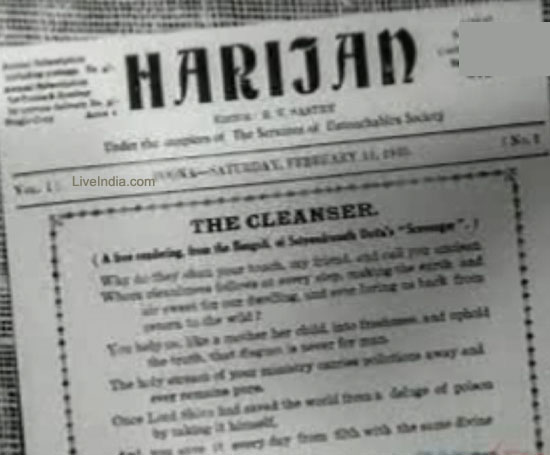 |
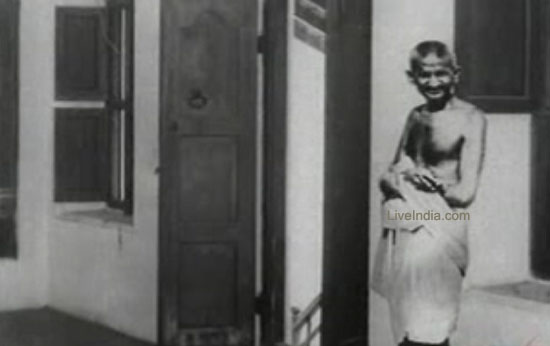 |
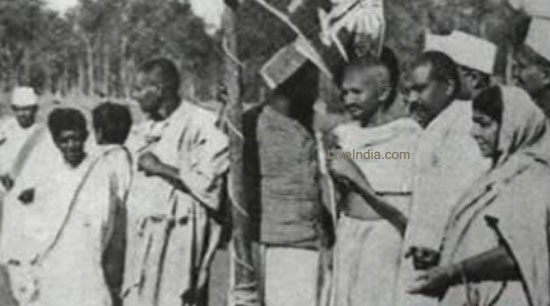 |
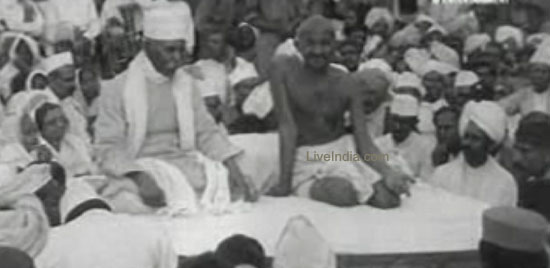 |
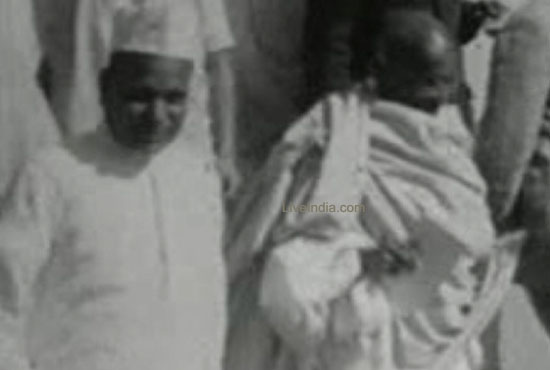 |
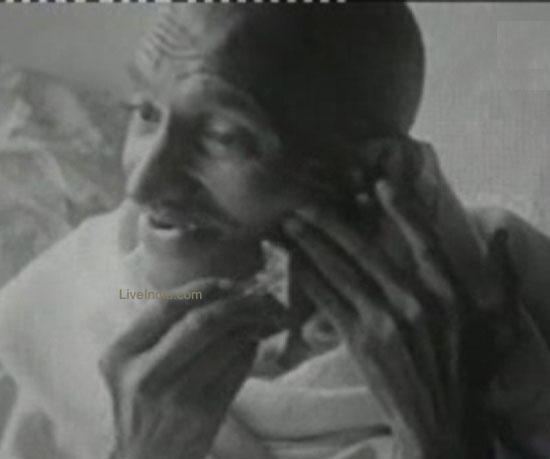 |
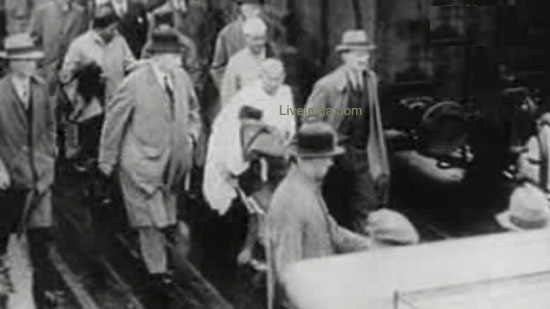 |
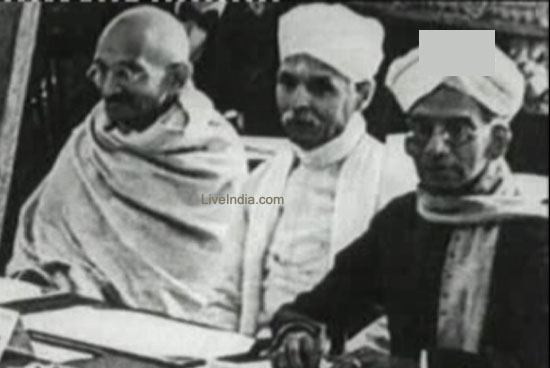 |
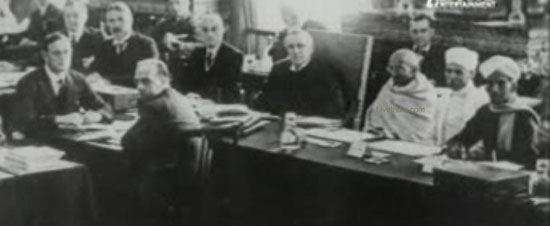 |
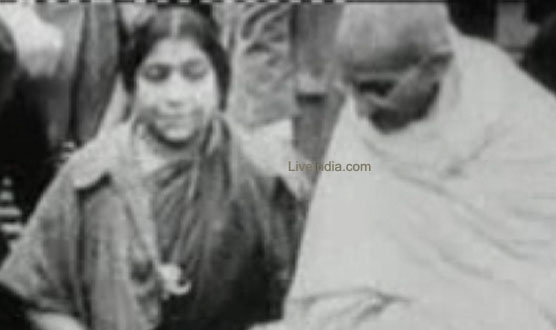 |
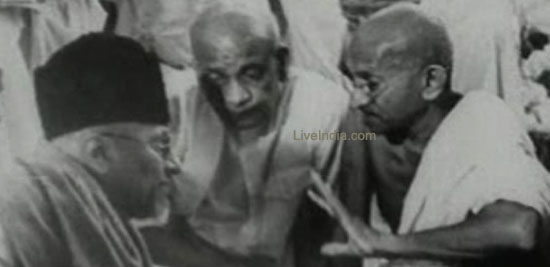 |
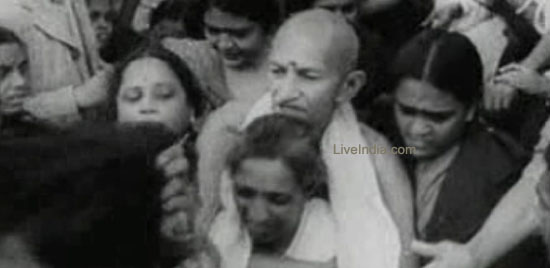 |
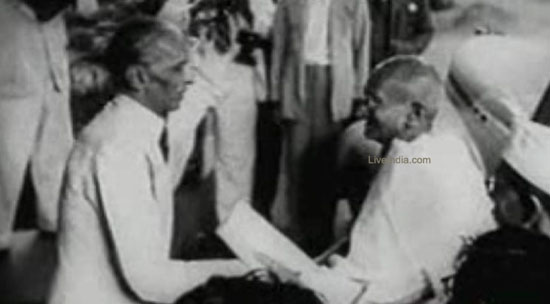 |
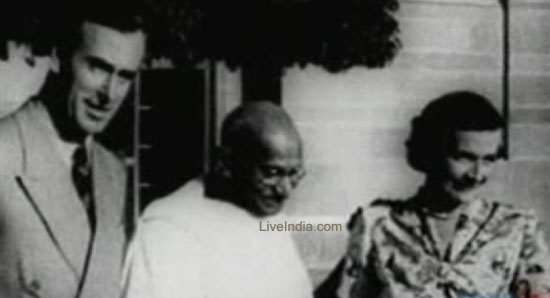 |
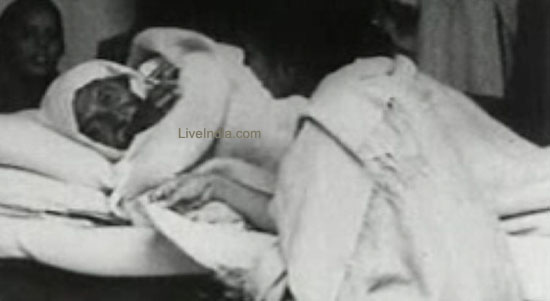 |
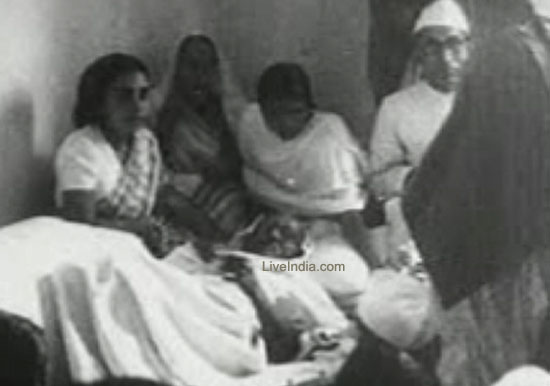 |
 |
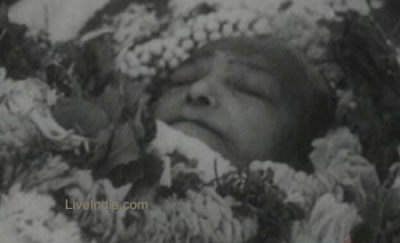 |
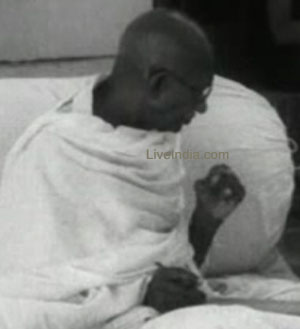 |
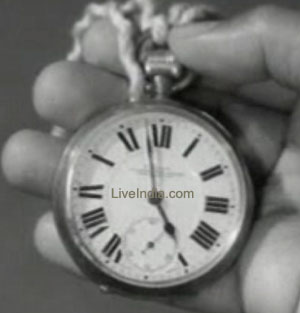 |
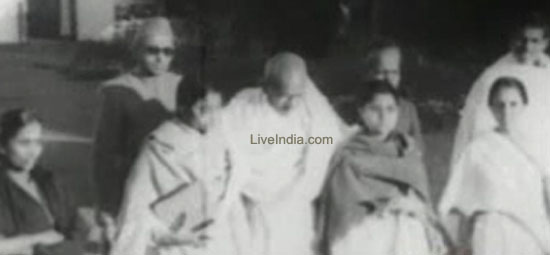 |
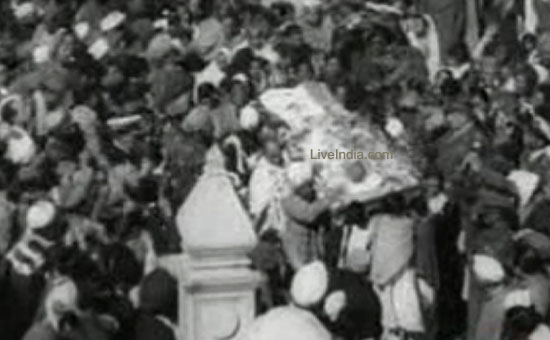 |
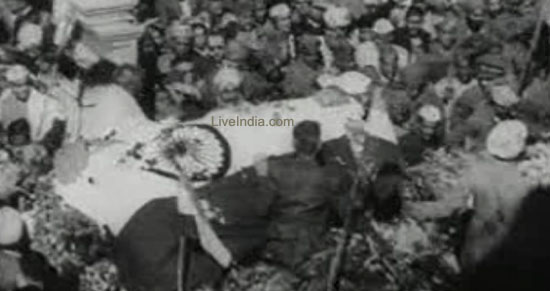 |
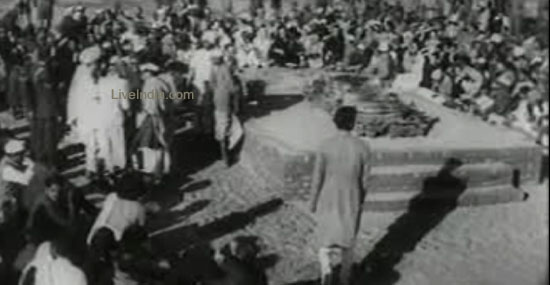 |
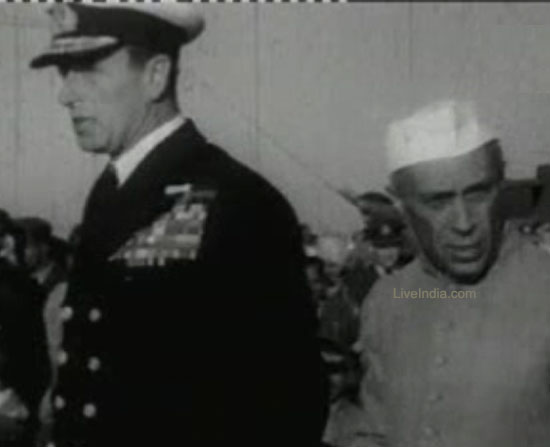 |
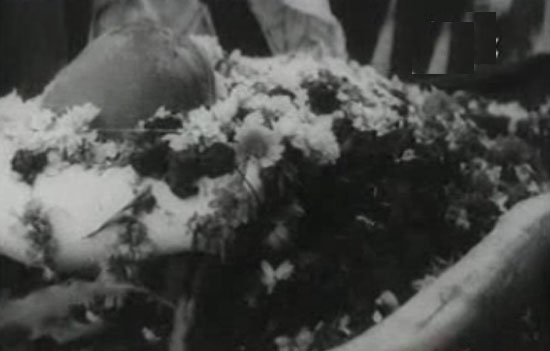 |
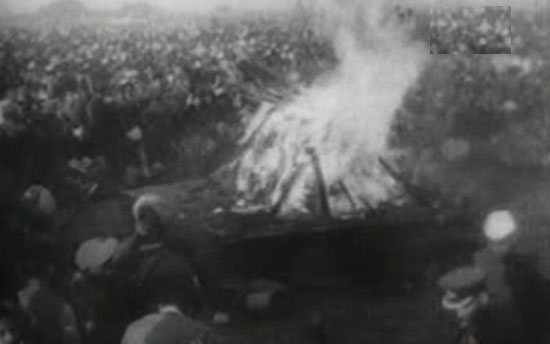 |
Mohandas Karamchand Gandhi life |